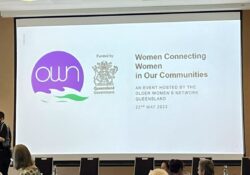According to the Australian Human Rights Commission, “they recognise the inherent value of each person, regardless of background, where we live, what we look like, what we think, or what we believe. They are based on principles of dignity, equality and mutual respect, which are shared across cultures, religions and philosophies. They are about being treated fairly, treating others fairly, and having the ability to make genuine choices in our daily lives. Respect for human rights is the cornerstone of strong communities in which everyone can make a contribution and feel included.”
All people – no matter their age, sex, colour, religion or where they live – have the same basic needs to live a healthy life. These needs include food, shelter, education, healthcare and freedom from persecution and discrimination. Through the Universal Declaration of Human Rights (UDHR), the governments of the world agreed that people have a right to have these basic needs met. Denying people their basic rights not only leads to the personal suffering of individuals – it can result in conflict and unrest in societies.
The Australian Human Rights Commission leads the promotion and protection of human rights in Australia, resolve complaints of discrimination or breaches of human rights under federal laws, develop education programs and resources for schools, workplaces, and the community, provide independent legal advice to assist courts in cases that involve human rights principles, provide advice and submissions to parliaments and governments to develop laws, policies and programs, and undertake and coordinate research into human rights and discrimination issues.
Given all this, why doesn’t Australia have a Human Rights Act? Australia is one of the only western democratic nations that doesn’t have a Human Rights Act or a Bill of Rights. Surprised??
In Australia, human rights are protected in different ways. Unlike most similar liberal democracies, Australia has no Bill of Rights to protect human rights in a single document.
Rights may be found in the Constitution, common law and legislation – Acts passed by the Commonwealth Parliament or State or Territory Parliaments.
Australians are firmly committed to democratic values and we have a strong sense of a fair go. Living in a modern democracy, we appreciate the importance of having laws that ensure all people can live in safety, in freedom, and with dignity. As such, Australians are big supporters of human rights.
In October 2016, Premier Annastacia Palaszczuk’s committed to introducing a Human Rights Act in Queensland, modelled on the Victorian Charter of Human Rights and Responsibilities Act 2006. This has been considered a significant step towards achieving individual dignity and equal opportunity for all Queenslanders.
While this was a welcome announcement from the Premier, there has been some movement on this front, however, with an election looming, there is the possibility that this progress will be lost. There are still significant steps that need to be taken until a Human Rights Act becomes a reality for Queenslanders. For human rights legislation to be passed, a majority vote of Queensland’s Parliamentarians is required.
Queensland Anti-Discrimination Commissioner Kevin Cocks has stated that, “Human rights belong to all Queenslanders’. Queensland desperately needs the cultural reform that would come from a Human Rights Act and the time for that reform is now. Queensland can learn from and improve on the Victorian Charter. Strengthening the way that Queenslanders’ human rights are respected, protected and fulfilled is one of the most important contributions the Parliament can make to future generations.”


